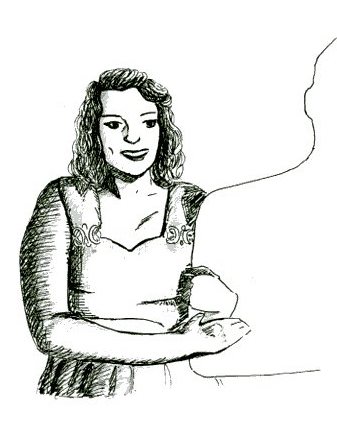“Sierra Burgess Is a Loser” has disturbing implications
October 15, 2018
Emulating hits like “Pretty in Pink” from the ‘80s, director Ian Samuels delivers a film that satisfies slumber party chick-flick cravings. But for the rest of us, “Sierra Burgess Is a Loser” is just another reminder that the cute, superficial romantic comedies of the past should stay there.
Shannon Purser stars as Sierra Burgess and manages to stay charming and compelling even when the script isn’t. After briefly playing Barb on “Stranger Things” before the character’s death, Purser became an audience favorite and social media phenomenon, likely prompting her return in another Netflix original film. Co-star Noah Centineo, established heartthrob from “To All the Boys I’ve Loved Before,” plays Jamey, a variation of Peter Kavinsky, the character that made him famous.
“You are a magnificent beast,” Burgess says to her reflection in the foggy bathroom mirror in the opening line. Her fierce grin introduces Burgess as a strong, smart girl who is comfortable in her skin, establishing a welcome contrast from the shallow personalities of many teen rom-com leads. However, as soon as a boy comes into the picture, she discards her admirable self-confidence and “haters gonna hate” attitude and concocts a creepy catfishing scheme: she pretends to be a popular cheerleader over text to woo Jamey (Noah Centineo), a lovable jock.
She then recruits Veronica (Kristine Froseth), the cheerleader she impersonates, to continue the deception. Even so, she’s eventually overcome with jealousy when she spots Veronica and Jamey kissing, retaliating by humiliating her “best friend” in front of the entire school. However, these issues are conveniently forgotten after a clichéd apology from Burgess. The film ends with a perfectly orchestrated kiss between Jamey and Burgess on Homecoming night, complete with a retro pink dress, a red car and a happy freeze-frame. It’s the ultimate, unrealistic denouement to a largely problematic film.
Although “Sierra Burgess Is a Loser” seems to be a novel take on the classic teenage romantic comedy, upon further inspection, the film falls apart into a series of clichés and questionable decisions. The plot glosses over Burgess’s questionable impersonation of Veronica. It’s possible to want Burgess to be loved for who she is, but it’s impossible not to admit that she’s being cruel to Jamey, a kind and trusting individual who genuinely believed he was falling in love with Veronica. His sincerity clashes with Burgess’ selfish and dishonest ploy, causing their relationship at the end of the film to seem forced and artificial.
In contrast to Burgess’s ultimately flat character development, Veronica, the clichéd popular cheerleader, undergoes a significantly more meaningful transformation. Though Veronica is initially inhumane and barely tolerable, as she develops a closer connection to Sierra, her personal life unfolds in front of the audience. By revealing her pressing family issues and striking intellectual insecurities, Veronica develops into a much more relatable character. It’s Veronica who is actually the victim in the film; she suffers from her demeaning college boyfriend and even Burgess, whose rash and hurtful actions had no consequence. Furthermore, the film skips over the heartbreak of the protagonist and the subsequent recovery, arguably the most satisfying aspect of romantic comedy. Burgess didn’t even manage to do that, instead sending a trivial apology and leaving Veronica to convince Jamey to reconsider. Veronica remains a steadfast friend in spite of Burgess’s betrayal and receives only a curt nod of acknowledgement for her loyalty and selflessness.
The whole message is mixed; on the surface, the film delivers the usual “stay true to yourself” moral to audiences, but this theme is undermined by the disturbing actions of the protagonist. “Sierra Burgess Is a Loser” should have been an empowering film about finding love as a plus-sized woman. Instead, her refreshing character falls into the traps of the clichéd rom-coms it desperately tried to avoid and ignores the key aspects that made those rom-coms appealing in the first place. Ultimately, the film takes a disastrous spin on an otherwise promising concept, resulting in an underdeveloped and uninspiring flop that claims more credit than it truly deserves.



